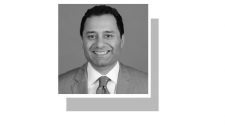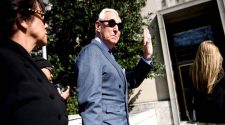Public health and politics have always been intertwined. Think abortion and reproductive rights. One prominent public health official appears to have managed to untwine the two: Anthony Fauci.
During this time of Covid-19, health and medicine are more politically charged than they have ever been. Physicians’ and nurses’ heroic responses to the Covid-19 pandemic has elevated their voices and provided them with unprecedented platforms. The pandemic may also have helped slow the erosion in trust that people have in the medical profession. This trust in clinicians will be critical if they are to continue to use their voices to educate people about the risks of the coronavirus pandemic and to increase acceptance for the vaccine we hope is on the horizon.
The movement for racial justice spurred by George Floyd’s death even pushed the pandemic to the backseat in the U.S. for a while. Many clinicians around the United States have joined what has now become a national movement by supporting racial equity on social media and in protests on the ground.
advertisement
Yet as public health officials softened their stances on social distancing during the protests, some have claimed that doctors are applying a double standard, since they were more vociferously opposed to protests led by right-wing activists against lockdowns. These doctors and public health experts who support the Black Lives Matter movement were accused of practicing partisanship rather than medicine, supposedly reflecting the liberal skew in medicine and academia.
Social activism is central to the mission of health equity that physicians embark upon the day they first don their white coats. Physicians, nurses, and other health care workers are often eyeball to eyeball with the most tragic consequences of societal injustice. Yet with Covid-19 rampaging across this country and the world, and with a presidential election fast approaching in the U.S., there is a real possibility that the white coat will become a partisan symbol.
advertisement
Fauci is an anomaly in this world. He became a physician in 1966 and has been the director of the National Institute of Allergy and Infectious Diseases since 1984. He has spent decades in the spotlight, and when one of the greatest crises in modern history struck, he was someone who people looked to for answers. He remains one of the most trusted voices in America during a time of intense ideological fragmentation.
If anyone knows how to advance a public health agenda without becoming mired in partisanship, it’s Fauci. I managed to get a chance to talk with him by phone a few weeks ago. We ended up speaking about a wide variety of subjects, but really focused on how he has been able to balance his advocacy for public health with his work as an official in administrations guided by widely varying political ideologies.
“I have had the opportunity to be involved in very difficult situations, from HIV/AIDS in the early Reagan administration and then throughout every subsequent administration, things like the anthrax attacks, the threat of pandemic influenzas, Ebola, Zika, chikungunya, and the disparities that have helped spread malaria and TB and, most recently, Covid-19,” he told me.
“The political climate and the politically charged issues change from administration to administration. The way you can survive and maintain the integrity of science as well as your personal integrity is that you cannot be ideological,” he said. “If you are in a position where you have got to deal with everyone and people are looking to you for something that is not tainted by politics, [something] that’s pure science, then you have got to really be careful about not getting into a situation where you are expressing a political view.”
While Fauci has greater support among liberals and Democrats, that wasn’t always the case. During the early days of the HIV/AIDS epidemic, he was the target of intense criticism from gay activists like Larry Kramer, who accused him of not doing enough to help the young people dying of the disease. In an open letter addressed to Fauci in 1988, the recently deceased Kramer called Fauci “a murderer,” though he later changed his mind, going on to call him “the only true and great hero” among government officials during the AIDS epidemic.
“People who have looked at me and written about me say I still can’t tell after all these years what he is. Is he a Democrat, Republican, independent, who is he? And that’s good. I like that,” he told me impassionedly.
I moved to the U.S. from Pakistan after the 9/11 attacks. My parents can’t visit me because of politics. I have been casually humiliated by my patients because of politics and religion. So I understand that politics pervades every part of our lives. Maybe it is naïve of me to believe that I and other health care workers can advocate for fundamental human rights and still retain nonpartisan in the current climate.
It is a shame that matters of fundamental human rights and public health have become political matters in this country. Racial equity is not a political issue. LGBTQ rights is not a political issue. Wearing a mask is not a political issue. These matters have been falsely painted as political matters, perhaps to artificially narrow the spectrum of voices that can participate, yet they remain well within the purview of the oath that physicians take.
I and other health care workers should advocate for these issues. But we should also emphasize that such activism is not a political act but an extension of our duties as upholders of the common good. We need to be especially careful that when we raise our voices we do not undermine our positions with partisanship. We need to push back against those who say that advocacy for equality and public health are political matters and reclaim social justice and equity into the practice of medicine.
Perhaps we might all learn from Fauci: keep your politics ambiguous and your values crystal clear. It is for this reason that he has been able to advance his agenda for decades and why his reputation and legacy are cemented even as some try desperately to tarnish them.
Haider J. Warraich is a cardiologist and researcher at Brigham and Women’s Hospital in Boston and an instructor in medicine at Harvard Medical School. The views expressed here are his and not necessarily those of his employers.





1-225x125.jpg)












